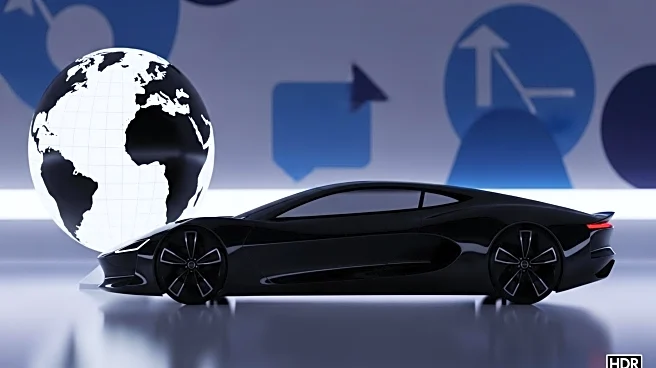What is the story about?
What's Happening?
The European Union has begun the process of reducing auto tariffs as part of ongoing trade negotiations with the Trump administration. This move is seen as a strategic effort to secure concessions on other trade issues. The reduction in tariffs is expected to benefit European automakers by making their vehicles more competitive in the U.S. market. The Trump administration is leveraging this tariff relief to negotiate better terms on various trade matters, including agricultural exports and intellectual property rights.
Why It's Important?
The reduction of auto tariffs by the EU could have significant implications for the automotive industry, particularly for European manufacturers seeking to expand their presence in the U.S. market. This development may lead to increased competition for American automakers, potentially affecting market dynamics and pricing strategies. Additionally, the Trump administration's approach to tying tariff relief to broader trade concessions reflects a strategic use of trade policy to achieve multiple economic objectives.
What's Next?
As negotiations continue, stakeholders in the automotive and agricultural sectors will be closely monitoring the outcomes. The EU's decision to reduce tariffs may prompt other trade partners to consider similar concessions, potentially leading to a broader reshaping of international trade agreements. The Trump administration is likely to continue using tariff adjustments as leverage in future trade discussions, aiming to secure favorable terms for U.S. industries.
Beyond the Headlines
The EU's tariff reduction could also influence global trade dynamics, encouraging other regions to reassess their trade policies in response to shifting economic alliances. This development underscores the interconnected nature of international trade and the importance of strategic negotiations in shaping economic outcomes.
















